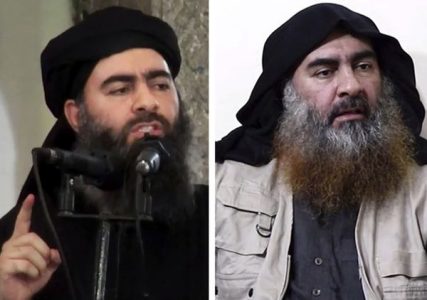
UN dossier: The Islamic State plans complex attacks in unexpected locations
Secret Islamic State terror cells are primed to carry out “complex” attacks in unexpected locations around the world before the end of the year, a UN intelligence report has warned.
A hefty $430m Islamic State (IS) war chest was funnelling arms and cash to incubated cells, fighters and affiliate groups across the Middle East, Africa and the Philippines, the report said.
A lull in major IS attacks since Sri Lanka’s Easter Sunday bombings which killed 259 people this year was predicted to end soon.
“IS still aspires to have global relevance and expects to achieve this by continuing to carry out international attacks,” the report said.
“The current abatement of such attacks, therefore, may not last long, possibly not even until the end of 2019. Meanwhile, more IS-inspired attacks will occur, possibly in unexpected locations.”
Intelligence sources currently rated IS a larger threat to global security than al-Qaeda, because of the offshoot group’s robust finances, carefully crafted media profile and hardened combat experience.
The extremist group’s fugitive leader Abu Bakr al-Baghdadi and his inner circle are hiding in Iraq, and have evaded being captured or killed despite being hunted by US-led Coalition forces and a $25m bounty on his head.
The report said al-Baghdadi cared little about the thousands of foreign fighters who joined his forces in Iraq and Syria, including hundreds of Australians.
IS leaders now regard them as “dispensable” since the fall of the self-styled caliphate and huge territorial losses, with Al-Baghdadi prioritising survival of Syrian and Iraqi fighters and his group’s leadership figures.
“Most foreign terrorist fighters are seen as dispensable and are left to fend for themselves,” the report said. There could be as many as 30,000 foreign fighters who travelled to the so-called caliphate who are still alive. Since 2012, around 230 Australians crossed into Iraq and Syria to join IS. Many foreign fighters are believed to have fled to Idlib in Syria, which now contains the greatest concentration of jihadists anywhere in the region. The report described Idlib as “the world’s biggest dumping ground for foreign terrorist fighters”.
The report noted the “poor” health of al-Qaeda leader Ayman al-Zawahiri and the possibility of 9/11 mastermind Osama bin Laden’s son taking over as leader of the terror group if al-Zawahiri dies.
Terror analysts are unsure how the transition of power inside al-Qaeda would work but it is believed Hamza bin Laden could head up the group, after being carefully groomed for the role.
Financial reserves totalling as much as $430m, some of it hidden in secret bunkers in Iraq and Syria, has allowed IS to spread its tentacles to reach far-flung pockets of the world.
Source: 9 News





